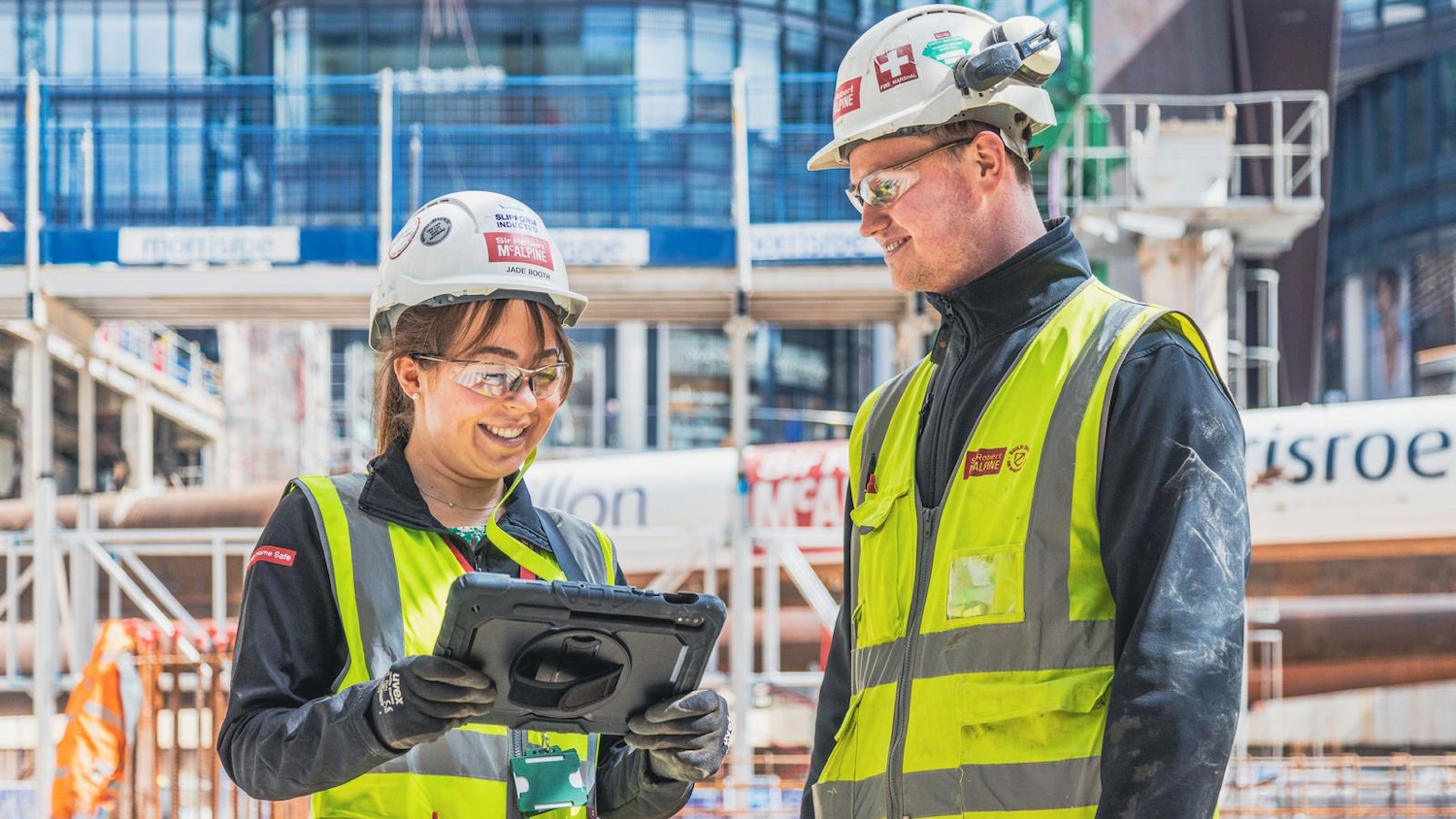
Nick Leach MCIOB, director of digital construction at Sir Robert McAlpine, has revealed some of the secrets of the contractor’s successful adoption of digital tools and processes.
Sir Robert McAlpine launched its digital strategy six years ago. Since then, the contractor has won three trophies at the Digital Construction Awards: its work on digital passports on 1 Broadgate was recognised this year; its conservation of Big Ben secured the Digital Construction Project of the Year 2023; and it was part of the team that won Digital Construction Project of the Year 2022 for the Forge in London.
Leach joined McAlpine seven years ago from Multiplex, initially as strategic digital/BIM lead. He was promoted to head of digital construction in 2020, and then to director last year.
“We’ve had a measurable digital construction maturity strategy for more than six years, which we implement on all of our projects to drive digital adoption,” he told CIOB People. “There are currently 30 live projects being measured and, as of July 2024, around 89% were hitting their digital maturity targets. Like all strategies, it is reviewed every year and we continue to adapt it in response to feedback and the ever-changing digital landscape.”
Here are the highlights of Leach’s interview with CIOB People.
Where does McAlpine get its digital skills from?
We have several initiatives in place across the business to drive digital adoption. First, we’ve got my function – digital construction – where people are trained in how we work, undertake external training, gain industry accreditations and so forth.
These individuals are then integrated into our project teams and one of their main remits is to ensure that they are providing upskilling, training and support, not just to our colleagues, but also to our wider stakeholders, including clients and the supply chain.
They are digital enablers who make sure that everyone is on board with the digital journey and get all teams to understand and use the multiple technologies and processes that we’ve mandated on projects.
We also have a dedicated in-house learning platform, for which we have developed training ranging from software and bite-sized videos to awareness content around hot industry topics or developments in the digital space.
At the end of last year, my team and I produced three new digital construction fundamental modules, which were mandated to all roles in the business to continue driving the knowledge, awareness and importance of digital adoption.
More than 85% of the organisation has completed these modules to date, which is quite a success rate when you have more than 1,800 employees in the business.
How does McAlpine deal with resistance to digital ways of working?
This has become a lot easier now thanks to our digital strategy. We have a lot of good use cases that we can lean on and testimonials from members of our construction teams who have become digital champions after they’ve seen the benefits that digital ways of working bring.
We also make sure we use the right implementation strategy, whether that’s training or guidance, and then ensure we understand who the audience is and what their drivers will be when we’re trying to get them to adopt a new way of working digitally.
A key component of that is trying to use very simple and basic language to avoid getting lost in technical jargon or acronyms. We make it easy for people to digest and be clear on what they’re going to get from the digital ways of working from the outset.
What are the biggest digital challenges for McAlpine and how are you overcoming them?
I think the biggest challenge is digital literacy because it’s key to ensuring that we stay competitive and continue to evolve.
We are aware of this as a business and have got a big initiative over the next 12 months that will allow us to benchmark where we are and also identify roles or functions that may need a bit more training and support.
This should also help identify colleagues who have digital skills that maybe we weren’t aware of, or those whose skills and expertise we could be using more to benefit the business going forward.
Another challenge is data security and governance, which is something we need to monitor continually.
Don’t miss out on BIM and digital construction news: sign up to receive the BIMplus newsletter.












